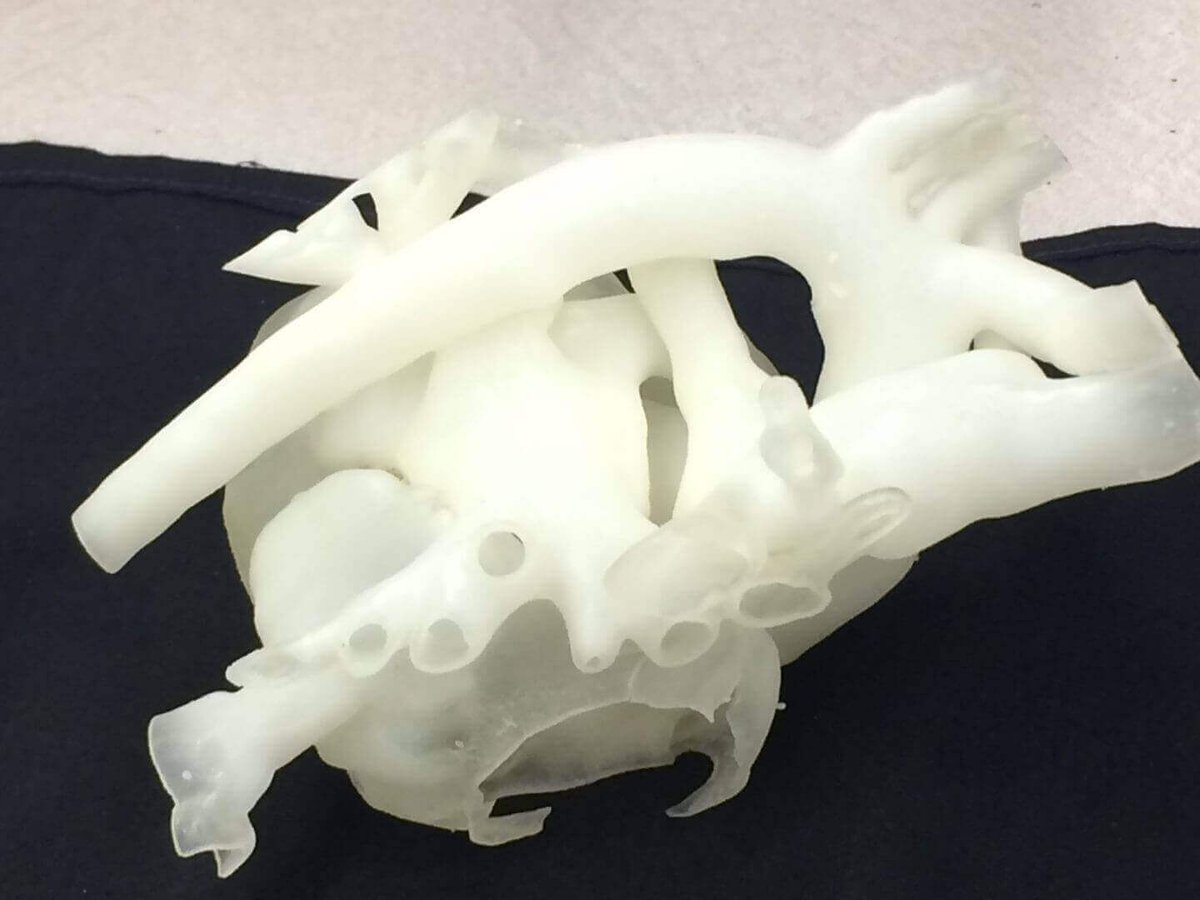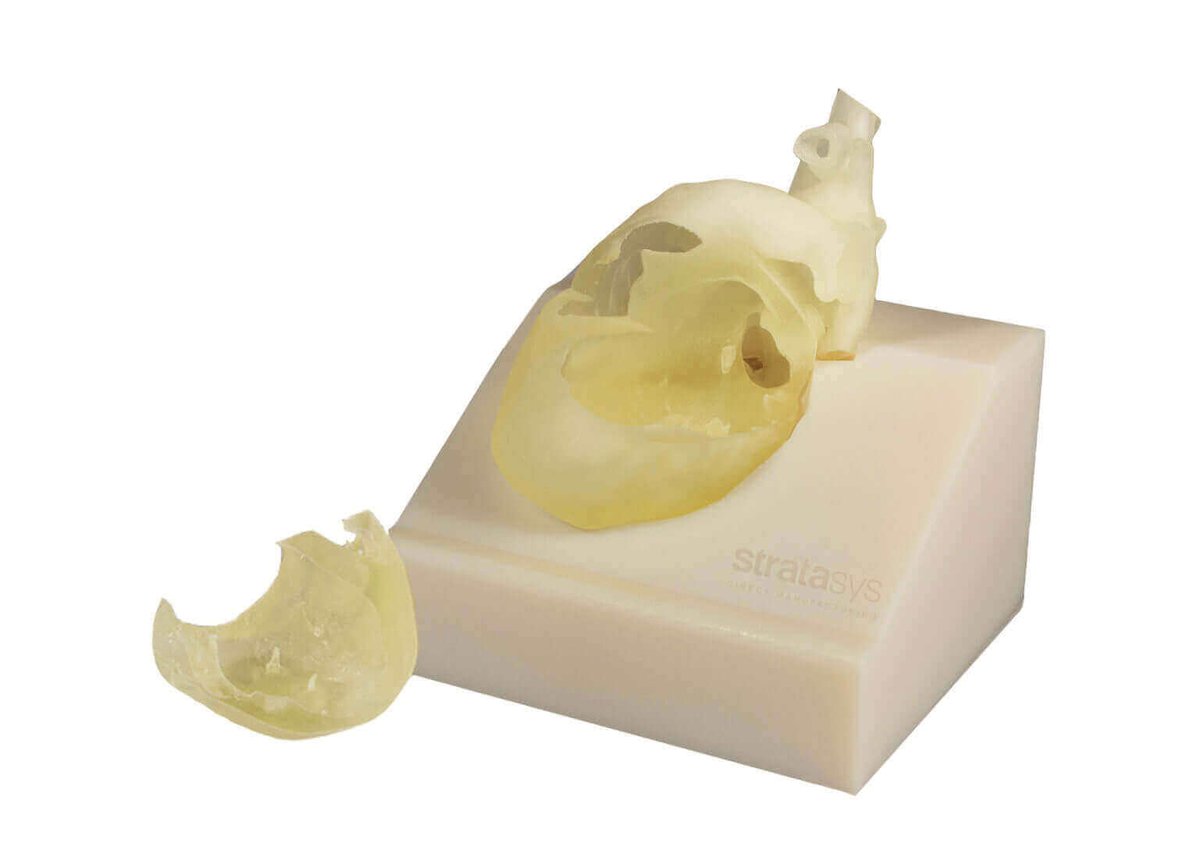A study is to be conducted examining the impact of 3D printing on pre-op planning for heart surgery.
At this point in time, 3D printing has found its way into many corners of the medical profession. From the creation of new tissues and bone, to quality of life improvements. One thing often missing from many of these real world applications though is quantifiable data from their real world usage.
To address this, a new study is due to take place analyzing the effectiveness of 3D printed heart models. Specifically, this study will target pediatric pre-heart surgery planning using replica models of the patients’ hearts.
Family-run nonprofit organization OpHeart will manage the study. A number of physicians from children’s hospitals across the US will conduct the research.
Dr. Yoav Dori, a Pediatric Cardiologist at the Children’s Hospital of Philadelphia — one of the participating units — describes the study:
“This study is incredibly important because it will finally quantify what we know from first-hand experience: 3D printed patient-specific models improve surgery, improve outcomes and result in lower treatment costs. If we can empirically demonstrate this, it will be a game-changer for treating not only children with congenital heart defects, but patients across the board.”

Using 3D Printed Models for Heart Surgery
For some, the benefits of 3D printing as an aid to plan heart surgery has to be seen to be believed. For example Dr. Sloane Guy, associate professor of New York’s Weill Cornell Medicine institution is a recent convert.
Guy, an open-heart surgeon, once dismissed 3D printing as media hype and gimmickry. That is, until a colleague handed him a clear print of a patient’s heart with a hole between the upper chambers. The model allowed Guy to identify a less intrusive path for the surgery that MRI and CT scans alone would not have allowed him to see.
OpHeart’s study will involve 400 patients in a random second-blind clinical trail. Half of them will have 3D printed heart models used in their pre-operation planning.
Ensuring a level of quality control and ease for the participating hospitals, Stratsys Direct Manufacturing will print the heart models, using CT and MRI scans to fabricate on its Connex3 3D printers.
Speaking on the process, Greg Reynolds of Stratasys Direct Manufacturing said “We understand the critical nature of this work and we’ve worked with the study investigators to develop a robust and responsive production process that puts these models in surgeons’ hands in as little as three days.”
Source: Stratasys Blog

License: The text of "Stratasys 3D Printers to Support Nonprofit OpHeart Clinical Study on Pediatric Heart Surgery" by All3DP is licensed under a Creative Commons Attribution 4.0 International License.